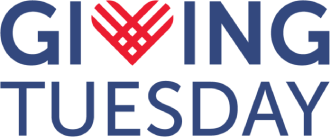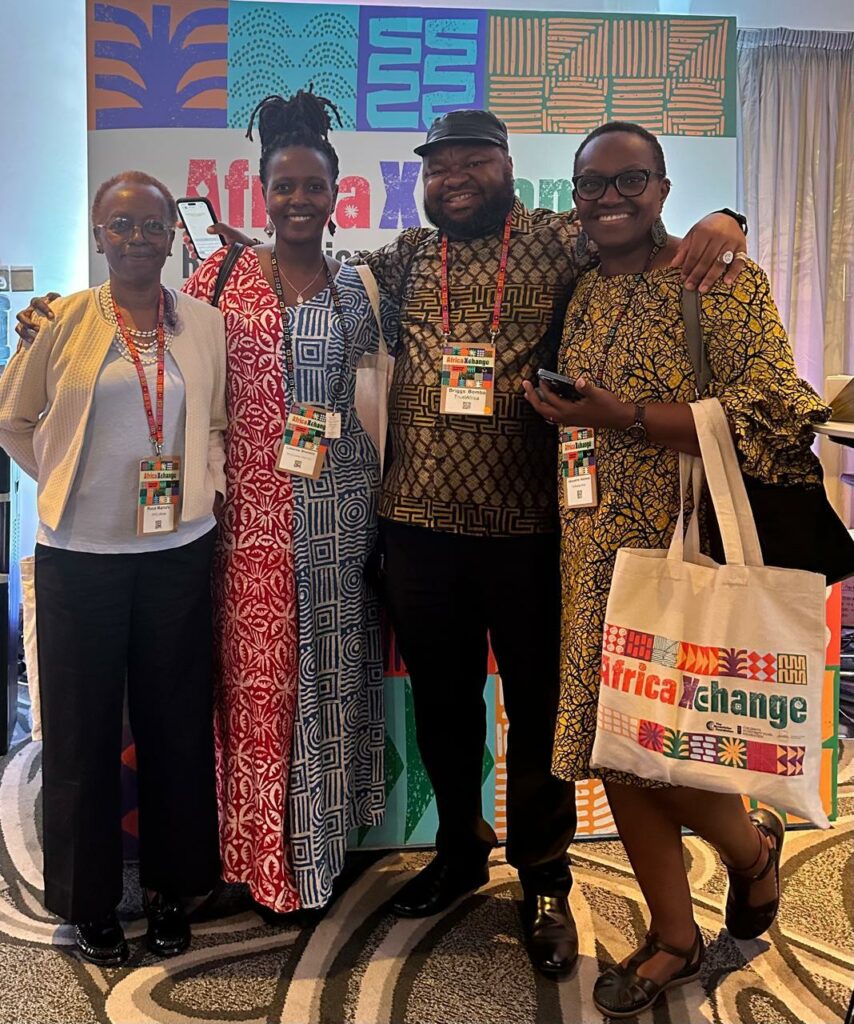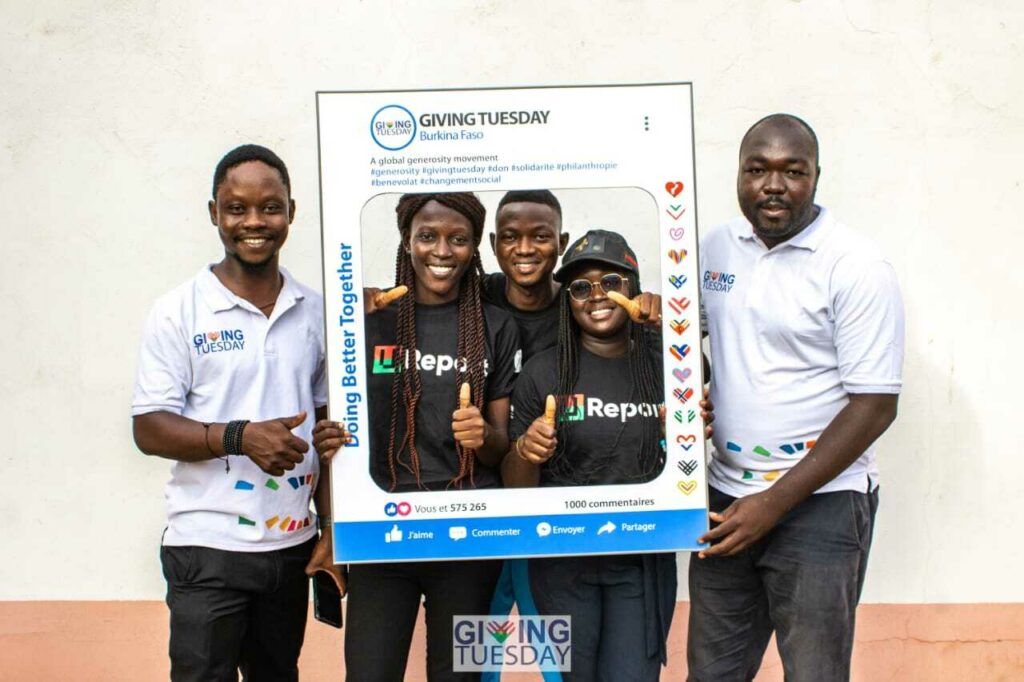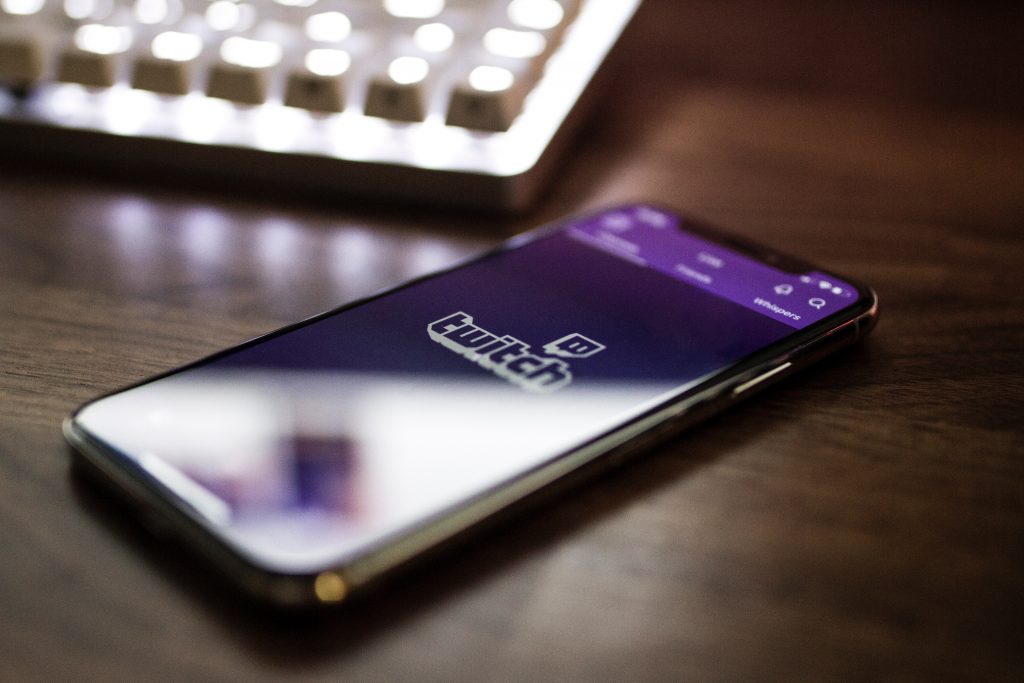By Catherine Mwendwa, GivingTuesday Hub Director – Africa
“Africa doesn’t just need African solutions—it needs African ways of doing, knowing, and giving.”
Earlier this month, I attended AfricaXchange, a conference organized by the Rockefeller, Hilton, and the Children’s Investment Fund Foundations. It felt like a true baraza—a communal space where people, committed to shaping Africa’s future, came together in dialogue and action. The mix was intentional and powerful — funders, government leaders, impact investors, community mobilizers, movement builders, businesses, and local organizations shared the same room – indicative of a shared need to address how ‘development’ is practiced in the wake of funding cuts.
A central theme was the need to deepen locally led development in designing, funding, and sustaining development initiatives. There was also a refreshing conversation about how philanthropy can be a bridge—connecting sectors like health, agriculture, and social protection—and encouraging cross-country, collective action instead of fragmented interventions.
What struck me most was that, while the role of individual and community giving was mentioned, it received relatively limited attention in the broader conversation. While institutional donors often take centre stage, everyday generosity is alive and thriving across the continent. People are constantly contributing—pooling resources in WhatsApp groups to pay school fees, countless alumni networks responding to community needs, professional networks building funds to support sustainable business ideas, citizens amplifying voices to champion better health policies, youth rallying online for justice, or showing up for neighbours in moments of crisis. This is the heartbeat of community resilience in Africa—a lifeline in the absence of a strong, responsive socio-economic safety net. This individual giving is a massive force for good that can be cultivated, encouraged, and fostered into a more resilient and powerful civil society, yet remains largely ignored in formal development strategies. When individual and community giving is not adequately recognized or supported, there is a risk of overlooking the everyday networks of care that play a vital role in helping communities navigate both crisis and daily challenges—especially in areas such as health and education. This can limit the potential of philanthropy, undervaluing informal contributions particularly at a time when every resource is needed.
Our deeply rooted traditions of generosity aren’t incidental; they are anchored in long-standing cultural systems and community-driven frameworks for organizing — practices like Harambee in Kenya, Omugwo in Nigeria, or Ubuntu in South Africa. If, in this ‘post-aid’ world, we genuinely want our development practices to change, we must recognize all forms of contribution—not just grants from large institutions but the voices, time, leadership, and trust invested by individuals and communities that build the social capital upon which open, resilient societies are built. We must respect that individual giving goes beyond money. It includes voice, presence, shared decision-making, and cultural wisdom. We must respect that it is through people’s participation in development and civic processes that they learn and embody the values of civil society and all it hopes to achieve; build trust; and cultivate cultures of resilience and self-determination that ensure evolution away from all that is broken in how development has been practiced.
Simply put, locally led development cannot thrive without local giving. But for us to realize Africa’s potential for local giving beyond family needs, we need trust-based systems that allow people to contribute in ways that reflect their realities and aspirations as a true expression of civic participation. We need to build infrastructure that supports this everyday generosity: platforms for transparency, policies that recognize collective action, and spaces that enable coalitions that integrate this form of organizing. While there are proven models and technologies across the continent—like mobile money systems like M-PESA, community giving circles, alumni networks, growing philanthropy networks, and youth-led digital movements—these tools are not available to everyone. Expanding access to these resources and creative spaces to innovate more of them could help us better understand and strengthen the way we organize.
The conversation at AfricaXChange reinforced a simple but transformative idea: that real commitment to systemic change starts with valuing what communities already do and, as Ndidi Nwuneli said, “scaling what works.” In many ways, this would mean supporting local leadership, honoring diverse practices of generosity, creating space for data-informed coalitions, and providing the training, platforms, and practical ways for pulling together as a continent. We have a unique opportunity to build infrastructure that supports the ways communities are already financing and driving development. Communities and individuals are already contributing valuable resources—time, voice, financial support, and skills—to promote resilience and growth. Rather than discussing solutions in the abstract, we must invest in strengthening the infrastructure that helps organize and mobilize these resources more practically and effectively.
“How do we engage in rethinking and reshaping giving—of time, money, and skills—so that it truly reflects people’s everyday realities, cultural practices, and lived contexts?
What will it take to commit to cultivating a culture of giving that reflects our values, traditions, and vision for the future? And how can we actively support cross-country collective giving that drives shared processes—anchored in lived experiences and indigenous practices—collective decision-making, and meaningful outcomes in building the Africa we want?”




